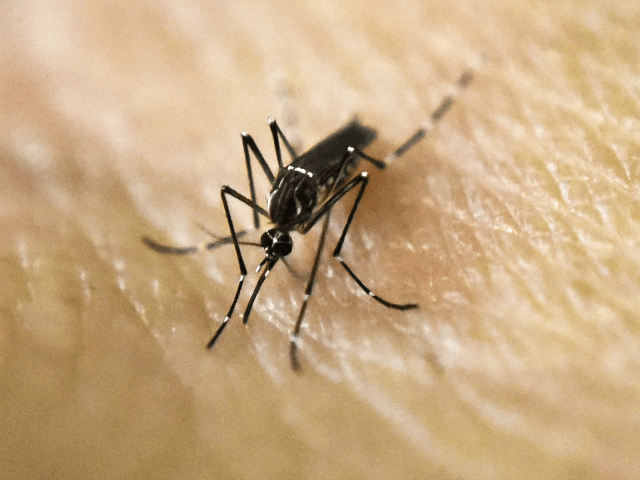The United States is already home to hundreds of Zika patients, with a local transmission hub in the territory of Puerto Rico. But health officials are warning that Zika-carrying mosquitos could be sweeping the continental U.S. within the next month, making it extremely difficult for the government to track who has Zika and prevent it from spreading.
Anthony Fauci, director of the National Institute of Allergy and Infectious Diseases, said in an interview over the weekend that he expects that the continental United States has about “a month or so” to prepare for the arrival of Aedes aegypti, the mosquito known to spread Zika virus, as well as dengue, chikungunya, and yellow fever.
“The concern is that we will have local transmission. In other words, people who get infected in the United States, get bitten by a mosquito, but who have never left the continental United States,” he explained, a situation which would make it significantly more difficult to track the spread of the disease.
Currently, Zika patients in the United States are known to have contracted the virus through two means: traveling to affected areas in Latin America and being bitten by a carrier mosquito, or engaging in sexual activity with a person infected with Zika. Preventing the spread of Zika in this situation requires safe sex measures and increased airport surveillance. Locally transmitted Zika would require a national campaign to eradicate the mosquitos themselves from the country until the winter months begin to naturally reduce their populations.
“We fully expect that that will happen as we get to the more robust mosquito season in the next month or so,” Dr. Fauci warned. While hot, humid areas like southern Texas and Florida are considered the most likely to yield the highest mosquito populations, Aedes aegypti is known to travel as far north as New York during the summer months.
Complicating the containment of Zika is the fact that it is often asymptomatic. An estimated 80 percent of Zika patients do not exhibit any symptoms, and those who do, suffer mild ones, such as conjunctivitis and low-grade fever. In many cases, Zika patients do not know they are carrying the virus. The danger of widespread Zika outbreaks – such as the one affecting Brazil, Venezuela, Colombia, and much of Central America today – is that the virus causes severe brain damage in the unborn. Scientists have confirmed a link between pregnant women contracting Zika virus and the neurological defect microcephaly, in which a child’s skull is too small for the size of its brain and crushes it, resulting in critical deformations. Many children do not survive their mother’s bout with Zika, and those who do will require a lifetime of special care.
By the end of April, Brazil had recorded nearly 100,000 Zika cases, of which 7,000 were pregnant women. The Brazilian Health Ministry has confirmed 1,300 cases of Zika-related microcephaly in infants. Colombia and Venezuela have also documented a marked increase in the number of microcephaly cases nationwide, though not as stark as that in Brazil.
In the United States, the U.S. Centers for Disease Control (CDC) announced that it had documented 157 cases of pregnant women diagnosed with Zika, triple the previous number, due to a policy change of including cases in which the women were asymptomatic but tested positive for the virus.
While American officials prepare for the start of summer, their Brazilian counterparts are hoping that the beginning of the Southern Hemisphere’s autumn will trigger a drop in the number of Zika cases. Officials are especially worried that Zika will infect the thousands expected to travel into Rio de Janeiro in August for the Summer Olympics, even as the month is typically winter in Brazil. International health experts have begun to demand that the International Olympic Committee (IOC) considers rescheduling the games or moving them to a safer location, though both the IOC and the Brazilian government appear set on hosting the games as planned. World Health Organization (WHO) head Dr. Margaret Chan is expected to be in attendance and has supported the decision to go on with the games.

COMMENTS
Please let us know if you're having issues with commenting.